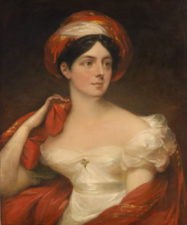The French are celebrating the fall of the Bastille today: a symbol of oppression smashed by the force of the people. It might be worth remembering on this day a few examples of women’s strength exerted in good causes.
On 14 July 1742 a servant called Phyllis performed wonders in helping to move goods to safety out of a burning house. The writer Horace Walpole, who was watching, wrote about this later in a letter. He presented her great physical strength not as heroic but as comical in a woman, and as made more of a joke by her name, which is a common name of shepherdesses in pastoral poetry.
On 14 July 1832: The Liberator, the American magazine edited by William Lloyd Garrison announced the formation of the first Female Anti-Slavery Society in the USA (in Providence, Rhode Island) – an exertion of women’s moral strength, which played an important role in breaking open the prison of slavery both in Britain and later in the USA.
On 14 July 1858 another liberator appeared: Emmeline Goulden, later Pankhurst, was born in Manchester, the eldest in a family of ten children.
Along with colleagues, Dr Isobel Grundy, University of Alberta, established the ground-breaking Orlando project– a scholarly history of women’s writing in the British Isles. She is author of the biography, Lady Mary Wortley Montagu: Comet of the Enlightenment.

